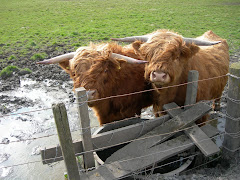Unless you live near the banks of the Don, Tweed or Clyde, or in any area in Scotland where trout thrive, deciding where to fish in Scotland can be a burden without careful planning and research. Things such as your budget, your lodging and the commodities you're going to need to bring comes into the fray of questions you need to answer first before casting your line in Scottish trout territory.
You also have to consider the seasons, when it is best to go fishing for trout and, where and how are you going to fish. Will you go fishing on the river or in a loch, large or small, north or south, highland or lowland, from boat or bank?
Basically start with researching all you need to know about trout, especially if it's going to be your first time to be fishing for it. Next, get to know Scotland as well, particularly the best places where you can accomplish your goal with fun and ease. Consider the dates: 14th of March to the 7th of October, as this time period is the open season for trout fishing.
Trout are cold-water fish. This fact helps in narrowing your choices for fishing spots. The Highlands are said to have excellent spots, as well as the rivers and lochs located at Argyll, Caithness, Orkney, Durness, and Perthshire. You may also consider some commercially stocked fisheries on either the Central belt or in Aberdeenshire. A good tip is to start exploring the communities around the sites, asking the locals and experts for advice.
The second to the last but still crucial thing to get before going to Scotland to fish is of course a fishing permit, especially for trout fishing on rivers, since most of it is covered under Protection Orders. They are available in tourist outlets, tackle shops, tour operators or angling clubs. Standard permits will only allow you to fish for wild brown trout and rainbow trout, a migratory fish permit is required for you to be able to do sea trout fishing.
The last important, but probably the longest, step to complete is the getting your own skills warmed-up enough. Make sure you have the proper tools.
Learn and diligently practice your fly-fishing on a loch before you move on to a river. Hone your techniques on the bank until they're up to the mark, then move on to the boat. Turn the boat 90 degrees facing the wind. It will help to have someone along to hold the boat in position.
Remember what your research is, especially the facts on where trout usually hide. Keep a steady rhythm of casting and retrieving. But remember to be careful not to scare them off! Catch your trout and draw a line where you caught your catch. Release most of them back into the water for the next day.
Three words to sum your trip to Scotland up: "prepare" and "have fun"!
JAMES FIELD is a trout fishing expert. For more information on trout fishing Scotland, visit http://www.troutfishingheadquarters.com/.
Article Source: http://EzineArticles.com/?expert=James_Field
Subscribe to:
Post Comments (Atom)









No comments:
Post a Comment